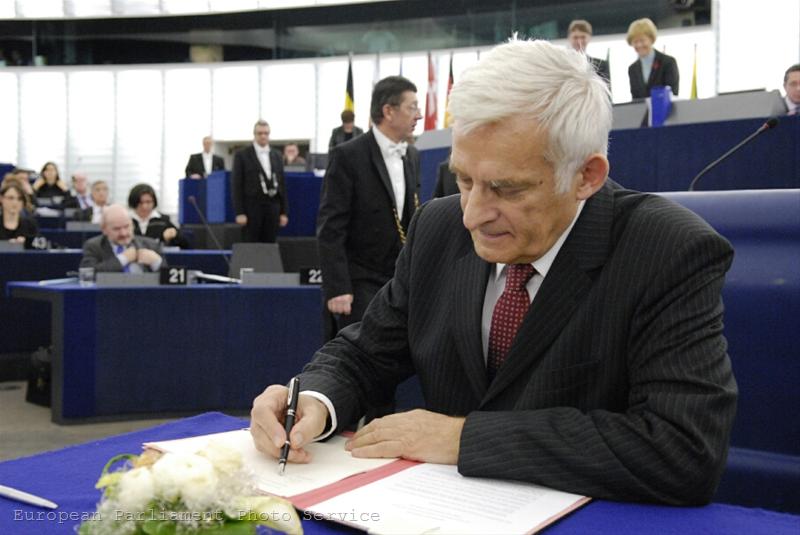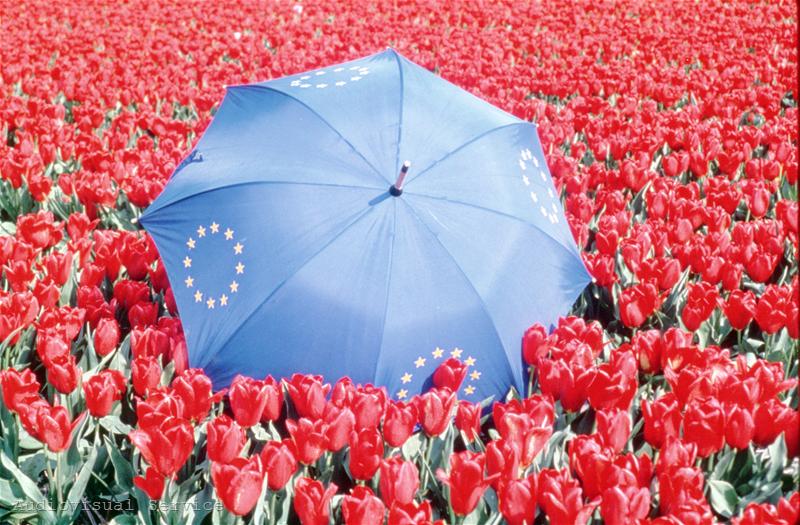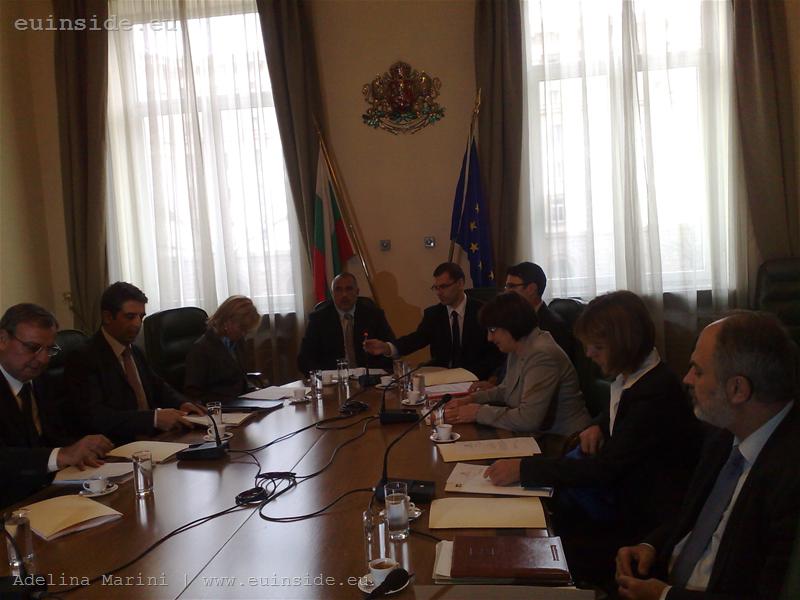No money for Bulgaria and Romania
Adelina Marini, April 24, 2007
The EP voted a very important report today about the future of the Structural policy of the EU that has to take account of the enlargements and their influence on this Policy. The author of the report is the German MEP Markus Pieper who is also a deputy spokesman of EPP for regional policy. This report shows once again something that Bulgarian politicians have vigorously denied during the months before Bulgaria's accession to the EU and, that is, that Bulgaria and Romania have not been included in the Financial perspectives of the EU for 2007-2013. That is the reason why the EU is urgently looking for 150 bn euro to finance the its Structural and Regional Policy.
The EU is facing very serious challenges which will deepen the gap among different regions instead of removing it. Markus Pieper has used as a base for his report his own analysis of the situation in Europe as a whole, the situation in Central and Eastern Europe. The conclusions are frightening - the situation of East European countries is much worse than previous enlargements. In other words, for the last years much more unprepared economically countries have joined the EU in comparison to the accession of Greece, Spain and Portugal.
But much more worrying, at this point, is the question where to find this 150 bn euro from, since the budget of the Community is not an option. Maybe some of you will remember the vigorous debates a year and a half ago which reached almost hysterical nuance during the British Presidency when the budget had been approved thanks to hard compromises. The whole problem lies within the fact that Bulgaria and Romania had not been well prepared for membership and the leaders of the EU decided not to include them in the budget. But then politics overcome reason and Bulgaria joined on the 1st of January 2007 but with not money for our country which, as we have noticed before many times, our politicians hide. When we talk about 7 bn euro, planned for our country we need to know couple of things: 1. This money is not ours but are planned for financing of projects. In other words - if there are projects for 7 bn euro then Bulgaria will get 7 bn euro.
2. Secondly, this money are being redirected from other items, mainly from the CAP (the Common Agriculture Policy) which, by the way, for year causes division within the EU. The biggest net receiver of agriculture subsidies is France and the greatest enemy of this Policy is Great Britain. Poland is also a country that longs for bigger share for its farmers. From this point of view we can only guess what their reaction would be if they find out that the money for them is over because it was given to us.
3. The third moment is the absorption of the money. The EP, taking into account all these facts and hard political decisions that accompany the debate for the additional money, recommends the expenditure of the money to be controlled through a magnifying glass so that it doesn't prove later that this money is being granted for nothing.
Another important aspect of the report is that 63 % of this 159 bn euro is actually ... for Turkey. The idea is the accession of unprepared countries to be avoided in the future. Unprepared not only politically but economically as well. You know that Turkey has very poor regions which are in deep contrast to the otherwise good indicators of the Turkish economy.
Markus Pieper underlined that from now on it would be very difficult to rely on the famous European solidarity at a moment when globalisation is moving whole industries from Western Europe further and further to the East and European voters constantly feel poor and robbed. That's why it would be necessary, he said, beside making a dull analysis of the situation, the rules to be changed either so that only regions that would generate economic growth would receive financing. And the regions that cannot generate growth would have to manage as they have always have.
Another issue at the agenda of the MEP's last night and today was the criminalizing of the violation of intellectual property. In a report about a draft Directive it is written that forgery and piracy are not crimes with no victims because such actions directly threaten consumers, undermine competitiveness of European industry, especially of small and medium enterprises and lead to the loss of jobs and, in fact, finance organised crime. The document also shows that since 1998 until 2004 the forgery cases within the EU only have increased with 1,000 %. The report calls on the EP to involve itself actively in solving this problem.
Here the report of the ECB for 2006 has been distributed which shows the situation of the economies in the euro zone. As a whole the estimation in the enormous report is good but it is underlined that for the last years the Euro zone member states have come to realise the need to adapt to the challenges of Globalisation.
 | © European Parliament Photo Service
| © European Parliament Photo Service | © Audiovisual Service
| © Audiovisual Service | © euinside
| © euinside